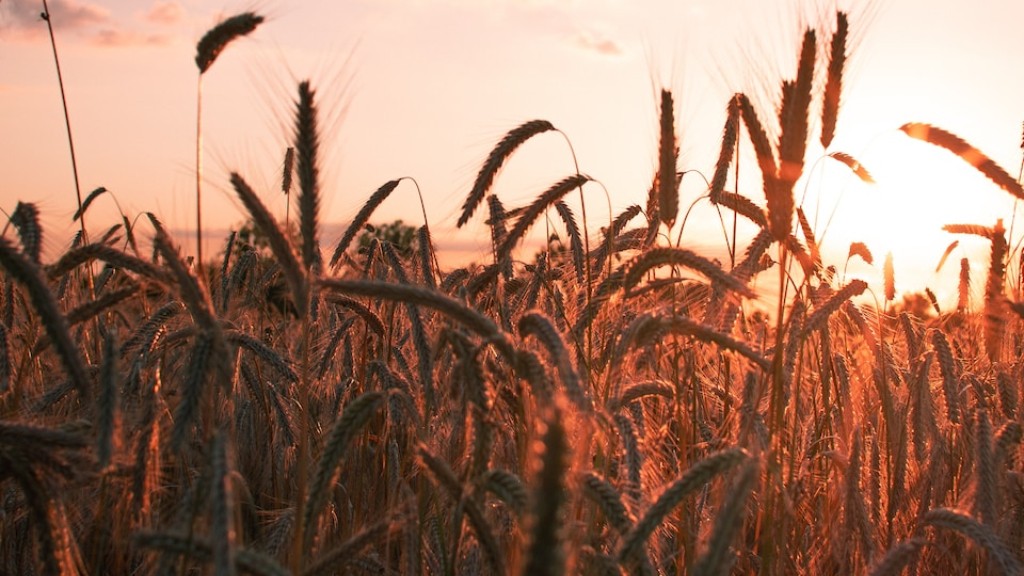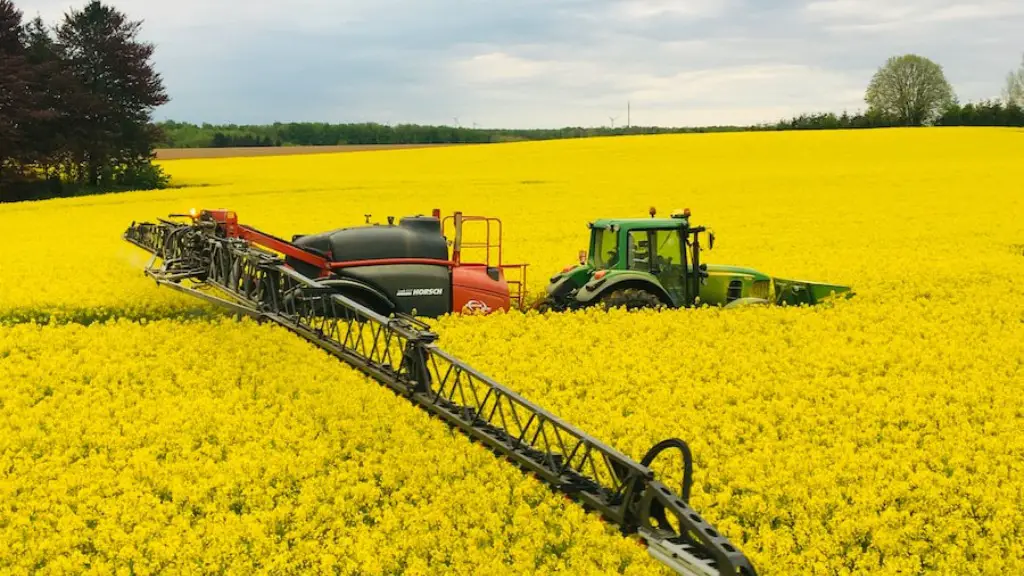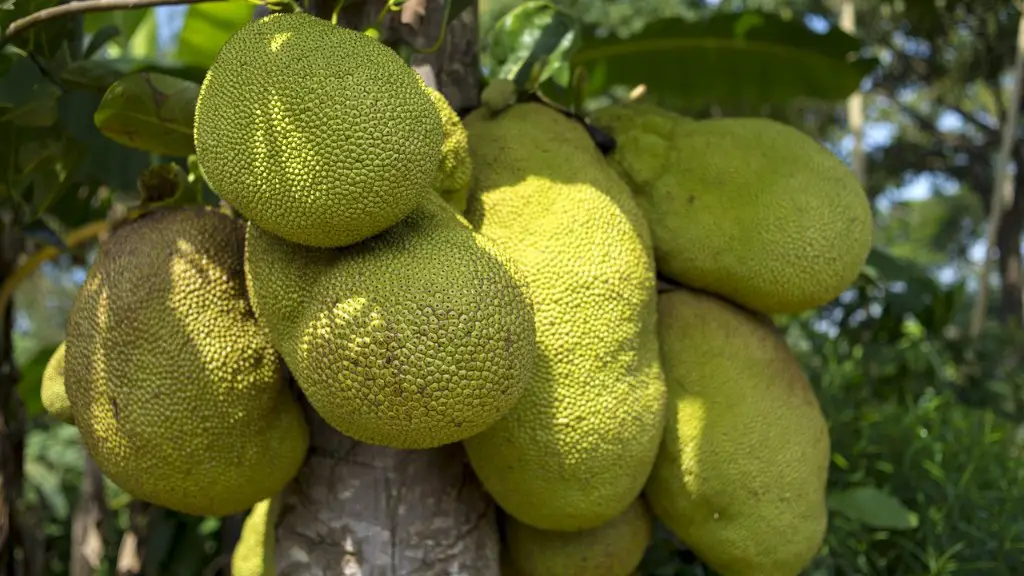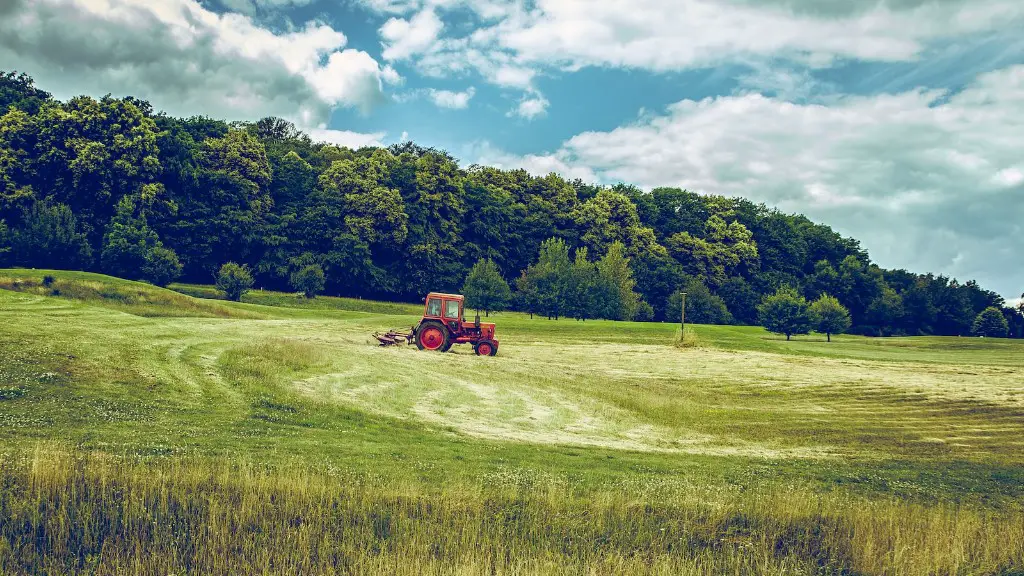Sustainable agriculture is a concept that aims to meet the needs of the present without compromising the ability of future generations to meet their own needs. It is a way of producing crops, livestock and other food products that minimise environmental degradation and preserve natural resources. To achieve sustainable agriculture, farmers must reduce their input of chemical fertilizers, herbicides and pesticides in order to protect the environment and their own health.
Agricultural practices such as crop rotation, integrated pest management, conservation tillage, and integrated nutrient management are used to promote sustainable agriculture. Crop rotation helps reduce soil erosion and aids in pest management. Integrated pest management uses both natural and synthetic methods of controlling pests and prevents the overuse of insecticides. Conservation tillage is a method that is used to reduce soil erosion, conserve water and preserve soil structure. Integrated nutrient management involves the management of organic and inorganic fertilizers to maintain soil quality.
Sustainable agriculture also emphasizes the use of renewable sources of energy, such as solar, wind and biomass. Renewable sources of energy are more sustainable than non-renewable sources, such as coal and natural gas, which produce emissions that contribute to global warming and climate change. Solar energy can be used to power irrigation pumps, electric fencing and other agricultural activities, while biomass can be used to produce biofuels that can power tractors and other farm machinery.
Additionally, sustainable agriculture promotes the use of organic farming practices and the preservation of biodiversity. Organic farming is a way of producing food that is free of synthetic pesticides and fertilizers. By avoiding the use of synthetic chemicals, organic farmers help protect the soil and water from contamination, while also preserving the genetic diversity of the agricultural landscape.
Finally, sustainable agriculture encourages sustainable livestock production practices that minimise animal welfare concerns, environmental impacts and improve the health and safety of the animals. Sustainable agriculture strives to produce high-quality animal products that are produced in a more humane manner, minimise the environmental impact of livestock production and minimise the emissions of greenhouse gases such as methane. Sustainable livestock production also focuses on the humane treatment of animals as well as quality feed and water.
Environmental Benefits of Sustainable Agriculture
The environmental benefits of sustainable agriculture are many. Sustainable agriculture produces food in a way that is environmentally friendly, with minimal impacts to the ecosystem. This includes preserving the topsoil, water and other resources necessary to maintain soil fertility, reducing or eliminating the use of chemical fertilizers and pesticides, and reducing the amount of waste materials entering the environment.
Sustainable agriculture also promotes healthier soils. Since there is no overuse of chemical fertilizers and pesticides, more beneficial organisms such as earthworms, fungi and bacteria are able to live in the soil and promote healthy soil structure and fertility. This helps increase the fertility of the soil, making it better suited for crop growth and allowing more crops to be grown in fewer acres.
Furthermore, sustainable agriculture reduces the risk of water pollution. By avoiding the overuse of chemicals and pesticides, there is less risk of those chemicals leaching into groundwater or surface water, which can have a negative effect on aquatic ecosystems. Additionally, sustainable agriculture promotes water conservation, as it is less water-intensive than chemical-based farming practices.
Moreover, sustainable agriculture reduces the damage to biodiversity caused by intensive farming practices. By reducing the use of chemical input and focusing on organic farming, sustainable agriculture practices help to preserve and promote biodiversity in ecosystems, providing habitats for natural predators and pests, and helping to protect against the spread of disease.
Economic Benefits of Sustainable Agriculture
The economic benefits of sustainable agriculture are manifold. One of the most important economic benefits is that organic farming and livestock production costs are often lower than those of intensive farming. Organic farmers often don’t have to pay for fuel and fertilizers, and the costs of maintaining soil fertility is much lower. As a result, organic farmers often yield higher profits per acre than their more intensive counterparts.
Another economic benefit of sustainable agriculture is that it is more resilient than other forms of agriculture when faced with extreme weather conditions and other hardships. By relying on organic farming methods and relying on biological pest control, organic farmers are less susceptible to losses caused by weather events, such as droughts, floods and heat waves. This is especially important for small-scale farmers who lack a safety net. Sustainable agriculture can also protect farmers from market fluctuations, as they are better able to produce food even when prices are low.
In addition, sustainable agriculture promotes local economic development. Sustainable agriculture practices are popular among consumers, as they are more health-conscious and often willing to pay higher prices for organic or local food. This often leads to an increase in demand for local farms and producers, which can lead to economic growth in local communities.
Finally, sustainable agriculture helps to conserve resources and foster the health of local ecosystems. By supporting local farmers and reducing our reliance on chemical inputs, sustainable agriculture can help preserve the environment and promote healthy soils, preventing land degradation and promoting healthy ecosystems.
Social Benefits of Sustainable Agriculture
The social benefits of sustainable agriculture are numerous. Sustainable agriculture helps to promote food security, as it is a more efficient and reliable way of growing food and reduces the risk of crop failure due to weather events and pests. Sustainable agriculture also helps to preserve and promote local traditional knowledge and agricultural practices, as it often relies on farmers’ existing knowledge, rather than imported knowledge and technologies.
Sustainable agriculture also improves social conditions in farming communities, as farmers are able to produce more with less, freeing them up to take part in other community activities or pursue other projects. This can result in higher levels of education and employment, as well as improved health and nutrition.
Additionally, sustainable agriculture helps to reduce poverty and improve gender equality. By helping to free up the time and resources of small-scale farmers, sustainable agriculture can help households reduce their poverty level and have more control over their own economic destiny. It also helps to promote gender equality, as women are often the primary food producers in many smallholder households.
Sustainable agriculture also helps to protect human rights. By reducing the need for chemical fertilizers and pesticides and promoting sustainable livestock production, sustainable agriculture helps to protect and improve the health of workers and their families. Furthermore, sustainable agriculture helps to preserve cultural heritage and promote community solidarity, as farming continues to be an important part of many cultures around the world.
Consumer Benefits of Sustainable Agriculture
Consumers can benefit from sustainable agriculture in many ways. Sustainable agriculture is often seen as being healthier, as it often avoids the use of chemicals and uses organic methods of production. This means that consumers can be sure that the food they are eating is produced in an environmentally friendly way, without the risk of chemical contamination.
Sustainable agriculture also has nutritional benefits. Produce grown using sustainable methods often contains higher levels of vitamins and minerals, as well as more beneficial phytochemicals and antioxidants. This means that consumers can benefit from a nutritionally dense and healthy diet.
Finally, sustainable agriculture helps to preserve local and cultural food traditions. By producing food in a sustainable way and promoting organic farming, traditional food crops and farming methods are preserved, and consumers can enjoy food produced in the traditional way.
Furthermore, sustainable agriculture helps to maintain the quality of the food produced, as well as the environment it is grown in. By relying on natural processes and staying away from synthetic chemicals, sustainable agriculture helps to ensure that food is safe to eat and of a high quality.
Additionally, sustainable agriculture helps to promote animal welfare. By avoiding intensive farming practices and relying on traditional methods of production, animals often receive better care and are better protected from disease.
Finally, sustainable agriculture helps to reduce food waste. By producing food in a way that minimises waste and reduces the need for inputs, food waste is reduced and more food can be produced in a shorter amount of time.





